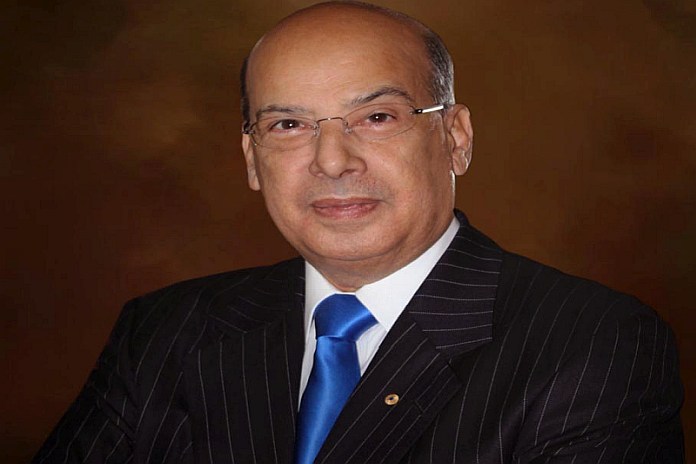Sir Ronald Sanders; Collaborative government, private sector action for resilient trade future
By Sir Ronald Sanders

On April 9, US President Donald Trump announced a 90-day suspension of the higher global tariffs imposed on April 3. This suspension spares only the baseline 10 per cent tariff on imports – levied without exception on all countries, including the 14 independent states of the Caribbean Community (CARICOM).
For CARICOM, this moment is not a reprieve, but a brief, strategic window – an opportunity to press for fairer trade terms with the United States.
CARICOM COST-BENEFIT LEDGER
Take Guyana and Trinidad and Tobago, whose exports had been hit with reciprocal tariffs of 38 per cent and 12 per cent, respectively. With this suspension, both now have a crucial chance to renegotiate. It’s worth noting that their key exports – oil and gas – remain exempt, shielding these sectors from immediate harm. Yet, beyond these commodities, the terrain remains uncertain.
PRIVATE SECTOR: CATALYST, NOT BYSTANDER
Governments can streamline processes, negotiate new trade agreements, and upgrade ports and logistics. But it is the private sector that must seek out new partners, forge trade ties, and invest in supply chain resilience. This means attending international trade expos, embracing digital trade platforms, and engaging in joint ventures beyond the traditional Atlantic axis.
A pivot to Africa, Asia, and Latin America will demand boldness. It will also require a fundamental shift in mindset – one that sees opportunity not inconvenience, and strategic autonomy, rather than unmanaged reliance.
THE UNITED STATES: AN IMPORTANT PARTNER
None of this is to suggest that the US should be cast aside. Its geographic proximity, deep-rooted trade relationships, and consumer preference in the Caribbean ensure its continued importance. But a healthy trade relationship is one of balance and mutual respect. CARICOM must press for the modernisation of CBERA, especially to include services, which now dominate the regional economy. The trade surplus the US enjoys with the region justifies such reconsideration.
ONE MARKET, ONE REGION, ONE VOICE
Finally, this moment must serve as a catalyst for what has too long remained a slogan: a real, functioning CARICOM single market. A common market with efficient regional transport for goods is not utopian, it is overdue. Dozens of studies have mapped the path. What’s missing is the will.
Isolated national efforts are no match for coordinated regional action. The time for fragmentation is over. In this moment of global flux, unity is the Caribbean’s best insurance policy.
This opportunity should not be another footnote in regional inaction. It should be the moment the Caribbean found its voice, lifted its sails, and charted a broader course.
Sir Ronald Sanders is Antigua and Barbuda’s ambassador to the US and the OAS. The views expressed are entirely his own. For responses and previous commentaries visit: www.sirronaldsanders.com





